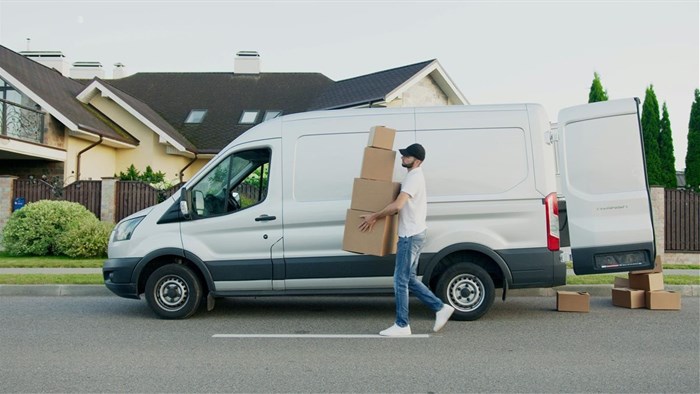As smartphones offer a wealth of possibilities with a single tap, the conflict between convenience and sustainability grows more intense. According to a recent report by global consumer internet group Prosus and Naspers, up to 50% of delivery-related carbon emissions stem from the last-mile phase. The report forecasts a 78% surge in global last-mile delivery demand by 2030, translating to a 36% rise in delivery vehicles across the world's top 100 cities. Without intervention, last-mile food, grocery, and e-commerce delivery could drive emissions up by 32%.

Source: Artem Podrez via
PexelsDamian Velayadum, group financial Director of Fastway Couriers highlights the global trend towards sustainable practices, including decarbonising the supply chain and transitioning to electric vehicles (EVs). However, South Africa's electrification rate stands at a modest 0.04%, contrasting sharply with the global average of 10%. ‘This reveals a significant gap in EV adoption, crucial when considering South Africa’s CO2 commitment to reduce emissions to between 350 and 420 million tonnes by 2030,’ he emphasises.
Challenges to EV adoption
According to the Electric Vehicles White Paper, the transport industry is South Africa’s third-largest source of emissions, contributing 11% to the total. The Department of Transport's Green Transport Strategy (2018–2050) aims to curb transport greenhouse gas emissions to 5% by 2050. "As responsible industry players, we can't overlook this, but we also have to acknowledge some challenges to EV adoption," says Velayadum.
The current energy mix is skewed towards fossil fuels which have a high carbon footprint, reducing the overall decarbonisation benefit of EVs in SA versus countries with a greater renewable energy mix. The country's enduring energy shortage and power availability also pose a challenge to EV adoption as questions arise on whether the grid has the capacity for this increase in energy demand. "These are just a few factors that could potentially hinder the pace of the EV transition in SA," explains Velayadum.
Future of last-mile delivery
Although South Africa faces challenges regarding the pace of EV adoption, in the current environment, electrification offers benefits beyond environmental responsibility and social impact. Scaling electrification offers the potential for improved business performance and substantial cost savings - mainly due to savings in fuel and maintenance.
"The future of last-mile delivery in South Africa could potentially involve greater integration of sustainable practices, increased efficiency through technological innovations like route optimisation algorithms and autonomous delivery vehicles, and a heightened focus on customer convenience and satisfaction.
"Yet, to gauge the readiness of South Africa's courier industry for these innovations, one would need to assess various factors such EV infrastructure development, investment in sustainable technologies, regulatory frameworks, government policies supporting sustainability initiatives, and, of course, the willingness of courier and last-mile delivery companies to embrace change," Velayadum concludes.





























